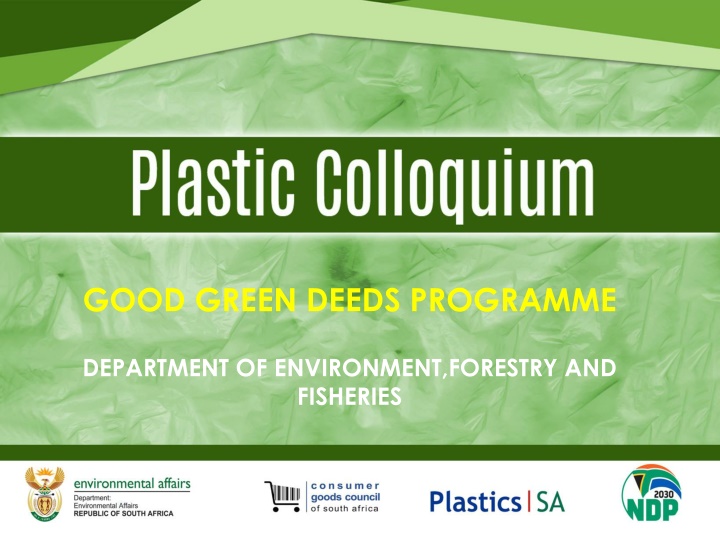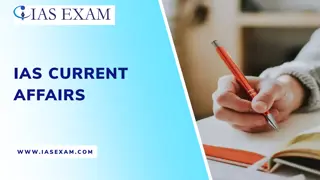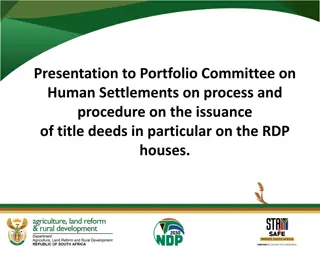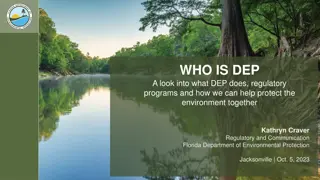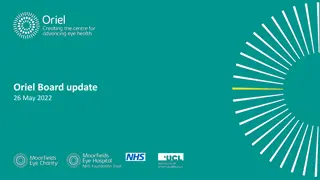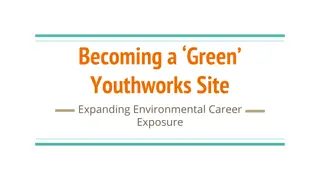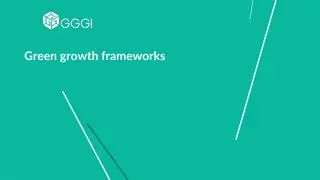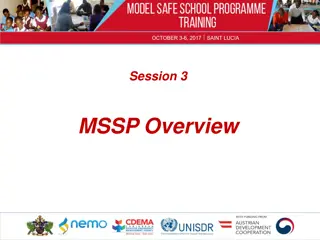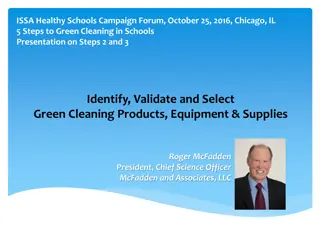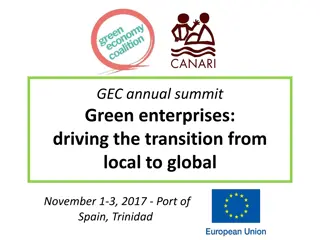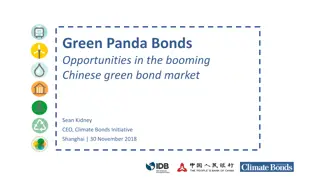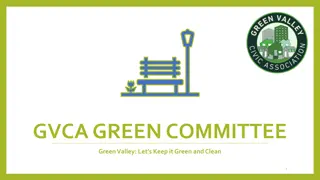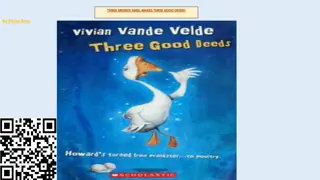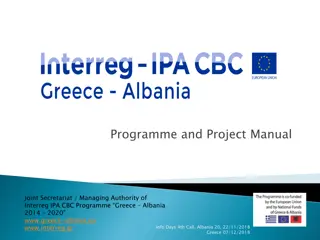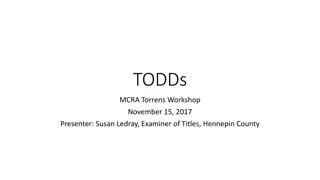Good Green Deeds Programme by Department of Environmental Affairs
The Good Green Deeds Programme, led by the Department of Environmental Affairs, aims to tackle waste management issues in South Africa. With a focus on changing attitudes and behaviors towards waste, the program encourages individuals and organizations to participate in clean-up activities and rehabilitate illegal dumping sites. Addressing historical waste service backlogs and skewed waste management practices, the initiative strives to create a litter-free and environmentally friendly culture nationwide.
Download Presentation

Please find below an Image/Link to download the presentation.
The content on the website is provided AS IS for your information and personal use only. It may not be sold, licensed, or shared on other websites without obtaining consent from the author.If you encounter any issues during the download, it is possible that the publisher has removed the file from their server.
You are allowed to download the files provided on this website for personal or commercial use, subject to the condition that they are used lawfully. All files are the property of their respective owners.
The content on the website is provided AS IS for your information and personal use only. It may not be sold, licensed, or shared on other websites without obtaining consent from the author.
E N D
Presentation Transcript
GOOD GREEN DEEDS PROGRAMME DEPARTMENT OF ENVIRONMENT,FORESTRY AND FISHERIES
Presentation outline Introduction and Background Problem Statement Situational Analysis Good Green Deeds Goals Good Green Deeds Objectives Awareness Raising Platforms Individual contributions to GGD DEFF Overall Expectations Conclusion
Introduction & Background The Department of Environmental Affairs is mandated to give effect to the right of citizens to an environment that is not harmful to their health or wellbeing, and to have the environment protected for the benefit of present and future generations. To this end, the department provides leadership in Environmental Management, Conservation and Protection towards sustainability for the benefit of South Africans and the global community.
Problem Statement A historical backlog of waste services for, especially, urban informal areas, tribal areas and rural formal areas exacerbates the littering problem. Waste generation is increasing with population growth, urbanisation, Etc.
Situational Analysis The waste services access remains highly skewed in favour of more affluent and urban communities. Ineffective waste management practices affect the well-being of the affected communities and this can be further exacerbated by the increased illegal dumping and littering. Inadequate waste services lead to unpleasant living conditions and a polluted, unhealthy environment. It is quite evident that littering and illegal dumping are some of the most common problems in South Africa affecting all provinces.
Good Green Deeds Programme Goals The main purpose is to change people s attitudes and behaviour towards waste and its management, as well as to begin taking charge and responsibility of keeping their neighbourhood clean The Good Green Deeds Programme seeks to encourage individuals and organisations to come together to conduct clean-up centred activities across South Africa and rehabilitate the illegal dumping areas
Good Green Deeds Programme Goals The objective is to instill environmental friendly behavior and create a national culture in which citizenry is aware of its role in attaining a cleaner and healthy environment through: i) Litter-free and no dumping behavior: The SA citizenry to be made aware of the impacts of poor waste management on their health and environment as well as being taught about on proper management of their own waste to keep their surroundings clean. ii) Waste minimization: Encourage communities to have less waste generation rates through promoting separation at source, re-use, recycle and recovery of their waste and making available infrastructure to allow that behavioral change i.e. Buy-back centers or Drop-offs. iii) Opportunities in waste: Advocate for entrepreneurship in the waste industry and access to green economy at the same time keeping our country clean. The recyclables would strengthen the manufacturing industry and promote sustainable production and consumption.
Good Green Deeds Programme Objectives The DEA has realized that more efforts are needed if the environment is to be protected from pollution and has decided on a national Good Green Deeds Programme (GGD) to mobilise every citizen. This is a nationwide environmental programme that proposes a simple but bold blueprint for what we all can do as individuals, Industries, organisations, faith based organisations, communities and as a nation to bring about the realisation of a cleaner and more environmentally presentable country.
Good Green Deeds Programme Objectives The main purpose is to change people s attitudes and behaviour towards waste and its management, as well as to begin taking charge and responsibility of keeping their neighbourhood clean The Good Green Deeds Programme will encourage individuals and organisations to come together to conduct clean-up centred activities across South Africa and rehabilitate the illegal dumping areas
Awareness Platforms Insert
Individual Contributions to GGD Know that waste is a valuable resource and should be recycled SEPARATE YOUR WASTE AT SOURCE
Private Sector Contributions to GGD The private sector is key in changing the approach to materials management especially for those products that become waste at the end of their useful life. The Department has secured partnership with private stakeholders with a view of diverting waste from landfill. The Partnerships will bring about a closer working relationship and co-operate in various areas within the scope where the mandates overlap with an aim of leveraging professional networks, resources, expertise and domain knowledge. The Department and the private sector acknowledge that both are working on projects and programmes, particularly in schools education and awareness, SMME development, integration of waste pickers, etc. where there will be mutual benefit in collaboration
Private Sector Contributions to GGD Some of the organizations that have collaborated with the Department include: Coca-Cola Beverage South Africa (CCBSA) PETCO PLASTICS SA Nedbank PAMSA IUCN Sustainable Seas Trust SASOL Department of Small Business Development
Community Outreach GGD Know that waste is a valuable resource and should be recycled : The Department has led various community Outreach Programmes in regions of the country. various Partnerships with various civil society organisations aimed at scaling up levels of awareness and partnerships.
DEFF Expectations Enhance the knowledge of good waste management principles in communities on the citizenry. Mobilize citizens, Politicians, Industry etc to take a firm position against littering and illegal dumping. Highlight the possible socio-economic opportunities in waste management. Diversion of waste away from the landfill sites To raise awareness to the citizens on the wider environmental issues
Conclusion We all need to work together to achieve the benefits of taking care of our environment
